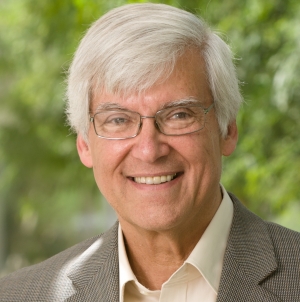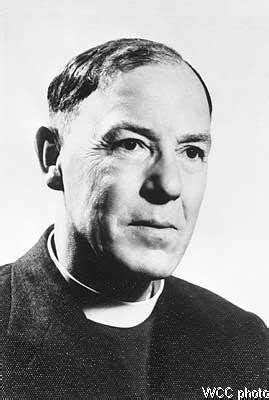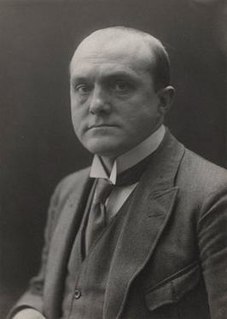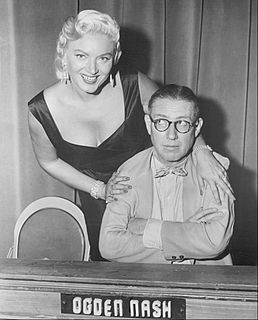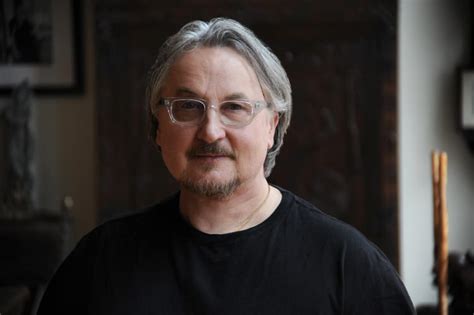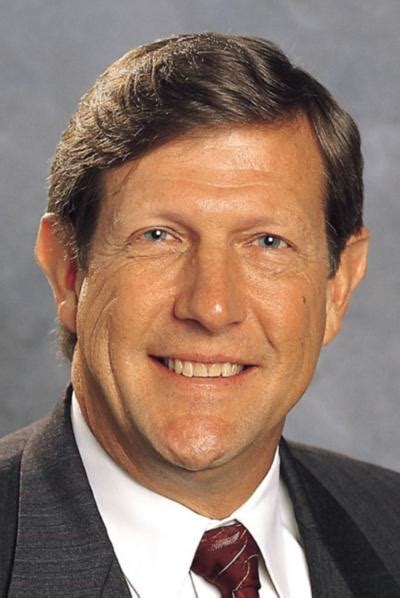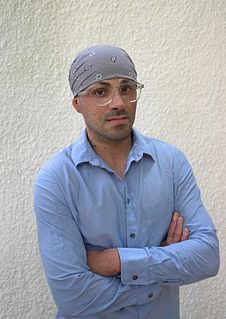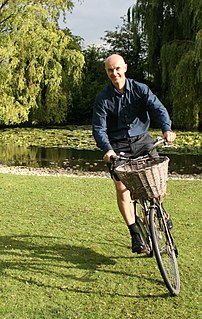Top 1200 Purest Form Quotes & Sayings - Page 19
Explore popular Purest Form quotes.
Last updated on April 21, 2025.
It was not the case that one thing morphed into another, child into woman. You remained the person you were before things happened to you. The person you were when you thought a small cut string could determine the course of a year. You also became the person to whom certain things happened. Who passed into the realm where you no longer questioned the notion of being trapped in one form. You took on that form, that identity, hoped for its recognition from others, hoped someone would love it and you.
You know, the primary process itself is very confusing. But in the end, I guess I believe what Winston Churchill said, which is that democracy is the worst form of government except for all the others. And that phrase of his, which I always have previously thought to be kind of acute, more recently I've thought of it in this way, to say well, you know what, he's also saying it's the worst form of government - except for all of the others.
Hateful day when I received life!' I exclaimed in agony. 'Accursed creator! Why did you form a monster so hideous that even you turned from me in disgust? God, in pity, made man beautiful and alluring, after his own image; but my form is a filthy type of yours, more horrid even from the very resemlance. Satan had his companions, fellow-devils, to admire and encourage him; but I am solitary and abhorred.' - Frankenstein
The slaving Poor are incapable of any Principles: Gentlemen may be converted to true Principles, by Time and Experience. The middling Rank of Men have Curiosity and Knowledge enough to form Principles, but not enough to form true ones, or correct any Prejudices that they may have imbib'd: And 'tis among the middling Rank, that Tory Principles do at present prevail most in England.
All "public interest' legislation (and any distribution of money taken by force from some men for the unearned benefit of others) comes down ultimately to the grant of an undefined undefinable, non-objective, arbitrary power to some government officials. The worst aspect of it is not that such a power can be used dishonestly, but that it cannot be used honestly. The wisest man in the world, with the purest integrity, cannot find a criterion for the just, equitable, rational application of an unjust, inequitable, irrational principle.
The true Enlightenment thinker, the true rationalist, never wants to talk anyone into anything. No, he does not even want to convince; all the time he is aware that he may be wrong. Above all, he values the intellectual independence of others too highly to want to convince them in important matters. He would much rather invite contradiction, preferably in the form of rational and disciplined criticism. He seeks not to convince but to arouse - to challenge others to form free opinions.
Comics are a "young" art form, and there is much confusion as to how to treat them. Images have more immediate impact than words, and it is not every reader who can be convinced to relax into experiencing the work for what it is - not words and pictures, but a different form, where the narrative is propelled by the blending of image, word and sequence, and where no element can be extricated and have the same meaning by itself. When this art is shown in a gallery, its "thingness" is called to attention, it is no longer experienced as "story," but rather as an artifact of the artist's process.
If men do not comprehend the character of God, they do not comprehend themselves..." If the veil were rent today, and the great God who holds the world in its orbit, and who upholds all worlds and all things by His power, was to make Himself visible, - I say, if you were to see Him today, you would see Him like a man in form - like yourself in all the person, image, and very form as a man.
Every virtue is a form of obedience to God. Every evil word or act is a form of rebellion against Him. This may not be clear at first; but, if we think patiently, we shall find that it is true. Why were you angry? You will probably find that it w as because you were not willing to accept the world as God has made it, or because you were not willing to leave it to God to deal with the people that He has made.
What's required of me in the field is to feel,' Stirton says with emphasis. 'And trying to take that feeling and put it in a form that communicates a particular set of emotions or circumstances - whether that involves depicting masculine pride, or a particular kind of suffering, or love, or closeness - my primary job is to feel and to try to put that feeling into some kind of visual form. My goal is to get to the heart of each story, you know? I’m trying to evolve in my work.
Power operates only destructively, bent always on forcing every manifestation of life into the straitjacket of its laws. Its intellectual form of expression is dead dogma, its physical form brute force. And this unintelligence of its objectives sets its stamp on its supporters also and renders them stupid and brutal, even when they were originally endowed with the best of talents. One who is constantly striving to force everything into a mechanical order at last becomes a machine himself and loses all human feeling.
There is plenty of room left for exact experiment in art, and the gate has been opened for some time. What had been accomplished in music by the end of the eighteenth century has only begun in the fine arts. Mathematics and physics have given us a clue in the form of rules to be strictly observed or departed from, as the case may be. Here salutary discipline is come to grips first of all with the function of forms, and not with form as the final result … in this way we learn how to look beyond the surface and get to the root of things.
Presumptuous Man! the reason wouldst thou find,Why form'd so weak, so little, and so blind?First, if thou canst, the harder reason guess,Why form'd no weaker, blinder, and no less!Ask of thy mother earth, why oaks are madeTaller or stronger than the weeds they shade?Or ask of yonder argent fields above,Why Jove's Satellites are less than Jove?
Nature has put itself the problem how to catch in flight light streaming to the earth and to store the most elusive of all powers in rigid form. To achieve this aim, it has covered the crust of earth with organisms which in their life processes absorb the light of the sun and use this power to produce a continuously accumulating chemical difference. ... The plants take in one form of power, light; and produce another power, chemical difference.
That the mere matter of a poem, for instance--its subject, its given incidents or situation; that the mere matter of a picture--the actual circumstances of an event, the actual topography of a landscape--should be nothing without the form, the spirit of the handling, that this form, this mode of handling, should become an end in itself, should penetrate every part of the matter;Mthis is what all art constantly strives after, and achieves in different degrees.
Good writing is the hardest form of thinking. It involves the agony of turning profoundly difficult thoughts into lucid form, then forcing them into the tight-fitting uniform of language, making them visible and clear. If the writing is good, then the result seems effortless and inevitable. But when you want to say something life-changing or ineffable in a single sentence, you face both the limitations of the sentence itself and the extent of your own talent.
[Raphael's] great superiority is due to the instinctive sense which, in him, seems to desire to shatter form. Form is, in his figures, what it is in ourselves, an interpreter for the communication of ideas and sensations, an exhaustless source of poetic inspiration. Every figure is a world in itself, a portrait of which the original appeared in a sublime vision, in a flood of light, pointed to by an inward voice, laid bare by a divine finger which showed what the sources of expression had been in the whole past life of the subject.
An mp3 is a compressed form of data. It's not the full spectrum. It's never going to sound as good as a record. I think one thing people forget is that every technological advance we fetishize had its place in time. CDs are usually an hour long because that's the amount a CD could hold - not because that's the optimal amount of time for any given musical expression. Side one and side two? That's a product of vinyl. But that's not necessarily dramatic form - you could argue that that was three acts.
I studied the Quran a great deal. I came away from that study with the conviction that by and large there have been few religions in the world as deadly to men as that of Muhammad. As far as I can see, it is the principal cause of the decadence so visible today in the Muslim world and, though less absurd than the polytheism of old, its social and political tendencies are in my opinion more to be feared, and I therefore regard it as a form of decadence rather than a form of progress in relation to paganism itself.
The body, the mind, and the spirit don't form a pyramid, they form a circle. Each of them runs into the other two. The body isn't below the mind and the spirit; from the point of view it's between them. if you reside too much in the mind, then you get too abstract and cut off from the world. You long for the spiritual life, but you can't get to it, and you fall into despair. The exercise of the senses frees you from abstraction and opens the way to transcendence.
The vanity of existence is revealed in the whole form existence assumes: in the infiniteness of time and space contrasted with the finiteness of the individual in both; in the fleeting present as the sole form in which actuality exists; in the contingency and relativity of all things; in continual becoming without being; in continual desire without satisfaction; in the continual frustration of striving of which life consists. . . Time is that by virtue of which everything becomes nothingness in our hands and loses all real value.
Fantasy is a product of thought, Imagination of sensibility. If the thinking, discursive mind turns to speculation, the result isFantasy; if, however, the sensitive, intuitive mind turns to speculation, the result is Imagination. Fantasy may be visionary, but it is cold and logical. Imagination is sensuous and instinctive. Both have form, but the form of Fantasy is analogous to Exposition, that of Imagination to Narrative.
In an age in which we can project an image and score that image based on immediate Facebook and Twitter feedback, thus making a video game of life and a false-reality composed of lies, what gets lost is a joyful obsession with the work we create from the purest of motives, a sheer joy in the act of creation itself that causes us to lose ourselves in something else, and in a way die to ourselves over the absolute love of a thing we are breathing into life.
Colour, as the strange and magnificent expression of the inscrutable spectrum of Eternity, is beautiful and important to me as a painter; I use it to enrich the canvas and to probe more deeply into the object. Colour also decided, to a certain extent, my spiritual outlook, but it is subordinated to life, and above all, to the treatment of form. Too much emphasis on colour at the expense of form and space would make a double manifestation of itself on the canvas, and this would verge on craft work.
Scientific practice is above all a story-telling practice. ... Biology is inherently historical, and its form of discourse is inherently narrative. ... Biology as a way of knowing the world is kin to Romantic literature, with its discourse about organic form and function. Biology is the fiction appropriate to objects called organisms; biology fashions the facts "discovered" about organic beings.
God's Word is not presented in Scripture in the form of a theological system, but it admits of being stated in that form, and, indeed, requires to be so stated before we can properly grasp it - grasp it, that is, as a whole. Every text has its immediate context in the passage from which it comes, its broader context in the book to which it belongs, and its ultimate context in the Bible as a whole; and it needs to be rightly related to each of these contexts if its character, scope and significance is to be adequately understood.
I tend to like the way poets form communities. Writing can be lonely after all. Modern life can be lonely. Poets do seem to be more social than fiction writers. This could be because of poetry's roots in the oral tradition - poetry is read aloud and even performed. I'm just speculating, of course. At any rate, because poets form these groups, they learn from one another. That is one of the best things about being a poet.
So here I stand before you preaching organic architecture: declaring organic architecture to be the modern ideal and the teaching so much needed if we are to see the whole of life, and to now serve the whole of life, holding no traditions essential to the great TRADITION. Nor cherishing any preconceived form fixing upon us either past, present or future, but-instead-exalting the simple laws of common sense-or of super-sense if you prefer-determining form by way of the nature of materials.
The worldly wisdom of the foolish man Is like a sieve, that does alone retain The grosser substance of the worthless bran: But thou, my soul, let thy brave thoughts disdain So coarse a purchase: O be thou a fan To purge the chaff, and keep the winnow'd grain: Make clean thy thoughts, and dress thy mixt desires: Thou art Heav'n's tasker, and thy God requires The purest of thy flow'r, as well as of thy fires.
We do have to learn poetry at school. Poetry is interesting to me, particularly Chinese poetry. It's like an ancient form of song. There's five sentences, seven sentences - they're very different from English poetry. Chinese poetry is much more rigorous. You can only use this many words, and they will form some kind of rhythm so people can actually sing it. To me, poetry is quite abstract but also quite beautiful.
The tea is pure chemistry, and so is everything else. But chemistry can be highly active with nutrients, it could be not very active and empty of nutrients or it could be a toxic, polluted substance. That's what interests me as an environmentalist, because I think we should only produce the purest, finest things. Then there would be no toxic side effects. There would be no wastes, because everything would be used responsibly.
A source of permanent, accessible pleasure, our genitals exist. The god who created our misfortune, who made us short-lived, vain and cruel, has also provided this form of meagre compensation. If we couldn't have sex from time to time, what would life be? A futile struggle against joints that stiffen, caries that form. All of which, moreover, is as uninteresting as humanly possible - the collagen which makes muscles stiffen, the appearance of microbic cavities in the gums.
Had Elijah Muhammad tried to introduce an orthodox form of Arab-oriented Islam, I doubt if he would have attracted 500 people, but he introduced a form of Islam that would communicate with the people he had to deal with. He was the king to those who had no king, and he was the messiah to those some people thought unworthy of a messiah.
He is not a true man of science who does not bring some sympathy to his studies, and expect to learn something by behavior as well as by application. It is childish to rest in the discovery of mere coincidences, or of partial and extraneous laws. The study of geometry is a petty and idle exercise of the mind, if it is applied to no larger system than the starry one. Mathematics should be mixed not only with physics but with ethics; that is mixed mathematics. The fact which interests us most is the life of the naturalist. The purest science is still biographical.
I want a drink. I want fifty drinks. I want a bottle of the purest, strongest, most destructive, most poisonous alcohol on Earth. I want fifty bottles of it. I want crack, dirty and yellow and filled with formaldehyde. I want a pile of powder meth, five hundred hits of acid, a garbage bag full of mushrooms, a tube of glue bigger than a truck, a pool of gas large enough to drown in. I want something anything whatever however as much as I can.
A letter is not a dialogue or even an omniscient exposition. It is a fabric of surfaces, a mask, a form as well suited to affectations as to the affections. The letter is, by its natural shape, self-justifying; it is one's own evidence, deposition, a self-serving testimony. In a letter the writer holds all the cards, controls everything about himself and about those assertions he wishes to make concerning events or the worth of others. For completely self-centered characters, the letter form is a complex and rewarding activity.
Though one should live through all the time from Adam and all the time to come before the judgment day doing good works, yet he who, energising in his highest, purest part, crosses from time to eternity, verily in the sight of God this man conceives and does far more than anyone who lives throughout all past and future time, because this now includes the whole of time. One master says that in crossing over time into the now each power of the soul will surpass itself. . . .
The nature of men and of organized society dictates the maintenance in every field of action of the highest and purest standards of justice and of right dealing.... By justice the lawyer generally means the prompt, fair, and open application of impartial rules; but we call ours a Christian civilization, and a Christian conception of justice must be much higher. It must include sympathy and helpfulness and a willingness to forego self-interest in order to promote the welfare, happiness, and contentment of others and of the community as a whole.
Every failure is a step to success. Every detection of what is false directs us towards what is true: every trial exhausts some tempting form of error. Not only so; but scarcely any attempt is entirely a failure; scarcely any theory, the result of steady thought, is altogether false; no tempting form of Error is without some latent charm derived from Truth.
Whatever they are, can Comics be "Art"? Of course they can. The "Art" in a piece is something independent of genre, form, or material. My feeling is that most paintings, most films, most music, most literature and, indeed, most comics fail as "Art." A masterpiece in any genre, form or material is equally "good." It's ridiculous to impose a hierarchy of value on art. The division between high and low art is one that cannot be defended because it has no correlation to aesthetic response.
The ritual sacrifice of children has been taboo for thousands of years. Yet tragically it is practiced every day across our world. We sacrifice children on the altars of our most destructive sins. When the sickness of pornography has run to its most evil and destructive end, it takes the form of child pornography. When prostitution reaches its sickest, most depraved form, it becomes child prostitution.
I taught myself how to draw, and I soon found out it was what I really wanted to do. I didn't think I was going to create any great masterpieces like Rembrandt or Gauguin. I thought comics was a common form of art, and strictly American in my estimation, because America was the home of the common man - and show me the common man that can't do a comic. So comics is an American form of art that anyone can do with a pencil and paper.
What I found interesting in dance is the idea that my work has always been dealing with the nervousness between the human subject as a subject and the human subject as a form. And if you look at my dance films, there are always these cuts between the dancer as a form, the dancer as a subject, and this kind of very harsh treatment of the dancer as someone who's actually drawing with their body.
In the world of knowledge, the essential Form of Good is the limit of our inquiries, and can barely be perceived; but, when perceived, we cannot help concluding that it is in every case the source of all that is bright and beautiful -in the visible world giving birth to light and its master, and in the intellectual world dispensing, immediately and with full authority, truth and reason -and that whosoever would act wisely, either in private or in public, must set this Form of Good before his eyes.
Of the various executive abilities, no one excited more anxious concern than that of placing the interests of our fellow-citizens in the hands of honest men, with understanding sufficient for their stations. No duty is at the same time more difficult to fulfil. The knowledge of character possessed by a single individual is of necessity limited. To seek out the best through the whole Union, we must resort to the information which from the best of men, acting disinterestedly and with the purest motives, is sometimes incorrect.
Every form of strength is also a form of weakness,” he once wrote. “Pretty girls tend to become insufferable because, being pretty, their faults are too much tolerated. Possessions entrap men, and wealth paralyzes them. I learned to write because I am one of those people who somehow cannot manage the common communications of smiles and gestures, but must use words to get across things that other people would never need to say.
Is there no virtue among us? If there be not, we are in a wretched situation. No theoretical checks-no form of government can render us secure. To suppose that any form of government will secure liberty or happiness without any virtue in the people, is a chimerical idea, if there be sufficient virtue and intelligence in the community, it will be exercised in the selection of these men. So that we do not depend on their virtue, or put confidence in our rulers, but in the people who are to choose them.
Due to his own original special nature, the Jew cannot possess a religious institution, if for no other reason because he lacks idealism in any form, and hence belief in a hereafter is absolutely foreign to him. And a religion in the Aryan sense cannot be imagined which lacks the conviction of survival after death in some form. Indeed, the Talmud is not a book to prepare a man for the hereafter, but only for a practical and profitable life in this world.
It would be wrong of me to suppose that just because I can form private mental images, that everyone can. As Francis Galton and William James long ago showed, a small proportion of adults-and some of these extremely intelligent-are unable to form such visual images. Berkeley's point is that it would be equally arrogant for these non-thinkers or non-image formers to claim that everyone is like them in the relevant respect. The temptation to pontificate in that way reveals a narrowness and unwillingness to see the world from another perspective.
Try not to confuse attachment with love. Attachment is about fear and dependency, and has more to do with love of self than love of another. Love without attachment is the purest love because it isn't about what others can give you because your empty. It is about what you can give others because you're already full.
When the Industrial Revolution started, the amount of carbon sitting underneath Britain in the form of coal was as big as the amount of carbon sitting under Saudi Arabia in the form of oil, and this carbon powered the Industrial Revolution, it put the 'Great' in Great Britain, and led to Britain's temporary world domination.
He's at ease, his body sculpted to the music, his shoulder searching the other shoulder, his right toe knowing the left knee, the height, the depth, the form, the control, the twist of his wrist, the bend of his elbow, the tilt of his neck, notes digging into arteries, and he is in the air now, forcing the legs up beyond muscular memory, one last press of the thighs, an elongation of form, a loosening of human contour, he goes higher and is skyheld.
If you like poetry let it be first rate, Milton, Shakespeare, Thomson, Goldsmith Pope (if you will though I don't admire him), Scott, Byron, Campbell, Wordsworth and Southey. Now Ellen don't be startled at the names of Shakespeare, and Byron. Both these were great Men and their works are like themselves, You will know how to chuse the good and avoid the evil, the finestpassages are always the purest, the bad are invariably revolting you will never wish to read them over twice.
If I'm a CEO and I say, 'Misogyny will not be tolerated', that's a more powerful statement than 'It is my sincere hope and our intention to eradicate misogyny from this company'. Sometimes saying things in that more categorical form, has a real function. Although, if you dig beneath it, it is actually one of J.L. Austin's illocutionary acts; you're trying to make something happen rather than describing something already happened. The fact that it has the grammatical form of a description is fine.
Given her deafness, the auditory part of the brain, deprived of its usual input, had started to generate a spontaneous activity of its own, and this took the form of musical hallucinations, mostly musical memories from her earlier life. The brain needed to stay incessantly active, and if it was not getting its usual stimulation..., it would create its own stimulation in the form of hallucinations.
I compelled myself all through to write an exercise in verse, in a different form, every day of the year. I turned out my page every day, of some sort - I mean I didn't give a damn about the meaning, I just wanted to master the form - all the way from free verse, Walt Whitman, to the most elaborate of villanelles and ballad forms. Very good training. I've always told everybody who has ever come to me that I thought that was the first thing to do.
Another form of prayer, called cataphatic, honors and reverences images and feelings and goes through them to God. This form of prayer also has an ancient and well-attested history in the world of religions. Any sort of prayer that highlights the mediation of creation can be called cataphatic. So, praying before icons or images of saints; the mediation of sacraments and sacramentals; prayer out in creation - all these are cataphatic forms of prayer

